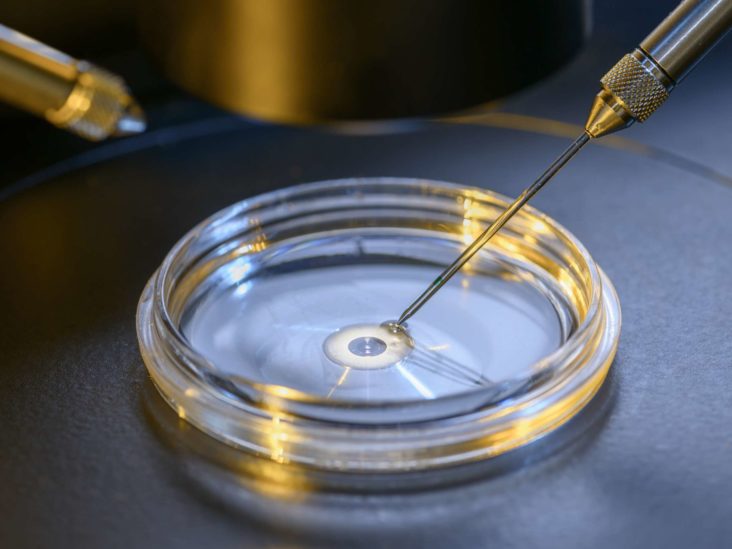Infertility is on the rise, and it is no surprise that many couples are facing issues when it comes to bearing children. Infertility has gone up appreciably all over the world and Nigeria is no exception. It is affecting women as much as it is affecting men and there are many reasons for this trend.
Among the common causes are a range of lifestyle factors, such as a routine that involves drinking alcohol, tobacco smoking, a lack of exercise, too much sitting down on the job, overuse of radiation technology and getting married and conceiving at a late age, among others.
Although women are commonly blamed when a couple is unable to conceive, men are not spared. In fact, male infertility is as significant as female infertility and both should be equally addressed.
If you are a couple that is wanting to conceive but the male partner has been diagnosed as infertile, there are options that you can choose from. One such procedure is PICSI which stands for Physiological Intracytoplasmic Sperm Injection.
This is a method of selecting the best sperm for fertilization and it is actually an improvement on another infertility treatment procedure known as ICSI (Intracytoplasmic Sperm Injection).
PICSI is a modern reproductive technology and is easy to carry out. What happens is that in ICSI an embryologist chooses only the best, most active sperm cell which is then immobilized with a special tiny needle under an electron microscope and injected directly into the egg cell.
With this method, only one sperm cell is necessary to complete the fertilization process and it gives men with low sperm count the opportunity to become fathers.
For couples that have attempted ICSI without success, PICSI is a good alternative. Essentially ICSI is an IVF procedure in which a single sperm is injected directly into the cytoplasm of an egg cell or ovum.
The technique is used to overcome male infertility and has been successfully applied for the treatment of many males with fertility problems.
The ICSI procedure is done when men have low sperm count, motility, quality, or abnormally shaped sperms. But if ICSI fails, you might opt for PICSI which is an advanced resort to treat infertility.
If as a couple you are constantly unable to conceive or have several miscarriages, you might opt for PICSI. Sometimes, the reason behind this challenge is unknown, but if all other methods of IVF fail to help, it is often a good idea to opt for PICSI.
We know that the better the quality of the sperm, the better the chances of fertilization. The procedure of PICSI works on the principle of Hyaluronan Binding. Hyaluronan is a material found in most part of the body including the egg cell.
The quality of the sperm is determined by its ability to bind with this Hyaluronan. During the PICSI process, the dish in which the sperms are placed, have traces of Hyaluronan. It is the sperm cells which bind to these traces that are selected for the procedure.
This PICSI procedure involves adding a special enzyme to the sperm to enhance insemination chances, but as explained earlier, it otherwise mirrors ICSI.
After an embryo forms, it’s transferred to the uterus and pregnancy hopefully occurs. PICSI is typically performed by lab specialists called embryologists.
Also, if you are a man with a problem of high DNA fragmentation, you can benefit from PICSI. Sperm is the house of genetic materials that are carried from the man to the body of the woman and DNA fragmentation actually refers to the amount of genetic damage in the DNA of sperm.
The fragmentation of the sperm DNA shows the breaks in it. Sperm DNA fragmentation is actually one of the leading causes of male fertility.
As mentioned, the procedure of PICSI is extremely beneficial for men whose sperms have high degree of DNA fragmentation. Through PICSI, the most genetically healthy sperm which increases the chances of fertilization are selected.
In the PICSI procedure, a sperm is chosen on the basis of its genetic matter and ability to fuse and fertilize, unlike ICSI which chooses a sperm only on the basis of its appearance.
Sometimes, a sperm that is healthy looking from its appearance, might be carrying genetic defects.
Sometimes, while the motility, quantity, and quality of the sperm are fine, failed pregnancy can also result in abnormal genetic composition of the sperm.
For PICSI, only the most genetically healthy sperm is chosen for fertilization. Going with a genetically healthy sperm increases the chances of conceiving considerably.
Sometimes when the exact problem with the sperm is not known. In such cases, PICSI is a good option to consider.
What PICSI does is to make the sperm selection process easier. Nature created a mechanism for mature, high-quality sperm cells to attach to the membrane of an egg. Sperm is put in a special jar covered with this substance.
As they are supposed to do, healthy, mature sperm cells start sticking to that substance on the walls of the container and the immature ones remain swimming freely.
Bottom line is that if you do not have enough active sperm cells or low sperm motility or low sperm count, you are a good candidate for ICSI.





